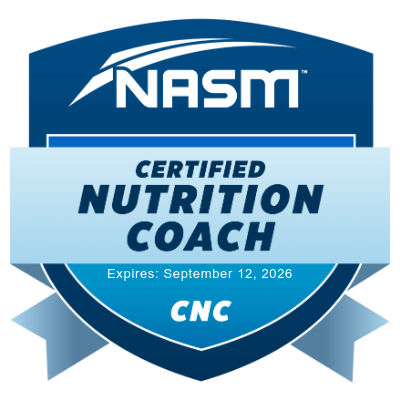
Breathing through your nose is the most efficient way for your body to process oxygen and expel CO2. Our sinuses filter and condition the air for us in a way that helps prevent dehydration. Mouth breathing has a slew of negative effects to avoid, but can bail us out of problems in a pinch. Here’s a detailed look at how it works…
In This Article…
- Why Nose Breathing Is Better
- Why Mouth Breathing Can Be Bad
- How Breathing Works
- But Coach Says ‘In Through The Nose, Out Through The Mouth!’
- Sinus Problems Or Blocked Airways
- Optimal Breathing Takeaway
Why Nose Breathing Is Better
When we breathe through our nose, several beneficial things happen. The first is that the air we breathe gets filtered because the tubular shape of our nostrils helps create a sort of net with our nose hairs. This, mixed with moistness caused by mucus production, makes particles like dust, pollen, allergens, and even viruses get stuck in our nose before entering our lungs. Without that filtration, our immune system has to fight more foreign objects that could cause allergy symptoms or infections.
Nasal breathing also warms and moistens the air we breathe as it passes through our nose. Because the air has to travel through your sinuses, it has more time to warm up to your natural body temperature. Cold air can irritate your airways and force them to constrict, which will make it even harder for you to breathe. Cold air is also drier, which causes you to dehydrate faster.
Without the warming filtration of your nose, this could counteract any perceived benefit from mouth breathing. I grew up in northern Minnesota where it gets colder than the surface of mars and can assure you from firsthand experience that warming and moisturizing the air you breathe does wonders for your endurance.
Finally, nasal breathing promotes vasodilation by releasing nitric oxide as you breathe. This means that simply by breathing through your nose, you can expand your blood vessels and transport more oxygen through the rest of your body. Pretty cool, huh?
Why Mouth Breathing Can Be Bad
It may feel like we’re getting more air, and while the volume of the air may be greater, the efficiency at which our body process it is almost always lesser. The most obvious reasons are the inverse of everything you read above. Air we breathe through our mouth is colder, drier, lacks filtration, and doesn’t release nitric oxide to dilate our blood vessels.
Unfortunately, that’s not all.
Did you know that mouth breathing during the developmental stages of your life can actually change the structure of your skull? ‘Long Face Syndrome’ isn’t just fodder for dad jokes, it’s a real thing that we believe is influenced by frequent mouth breathing in youth. Combine this with oral problems like cheilitis glandularis, gingivitis, sleep apnea, snoring, bad breath, and tooth decay and you might never want to open your mouth again.

How Breathing Works
The science of breathing is quite fascinating, but let’s break it down and simplify it for our purposes.
Without thinking, we inhale. Your brain’s medulla oblongata and pons, which house the respiratory center, regulate this. The respiratory center’s job is to monitor the incoming levels of gasses like oxygen, nitrogen, and carbon dioxide (CO2), then balance them inside your body. It’s an extremely complicated process we can take for granted because our brain just takes care of it as part of homeostasis.
As we inhale (ideally through our nose), air comprising mostly nitrogen (~80%) and oxygen(~20%) travels to our lungs, where a process of diffusion takes place. Diffusion is basically your lungs transferring oxygen from the air in your lungs to your blood while simultaneously transferring the CO2 in your blood to your lungs. The oxygenated blood then pumps (thanks to your heart) through your body and supplies all the processes with fresh, clean oxygen. Once used, the oxygen gets converted to CO2 and travels through your blood back to the lungs.
When we exhale, we expel CO2 (along with a bunch of other stuff) and our body naturally starts the process over. As we exercise, however, our muscles create additional CO2 as a waste product. This builds up in the blood and overwhelms the lungs as they try to expel the excess CO2 from your cardiovascular system. As a result, you breathe harder and try to inhale enough oxygen to compensate.
What’s interesting is that the way our bodies are wired, inhalation is a reflex. This means we don’t have to think about it because our diaphragm expands to bring oxygen into our lungs. Exhalation is also a reflex, but under duress (exercise) your brain sort of gives up on the whole in and out thing and panics, saying “I NEED MORE OXYGEN, STAT!”, forcing you to take sharp breaths in. If we force ourselves to breathe out (mentally force our diaphragm to relax), our lungs will naturally fill again quickly. In other words, when you run out of breath, it can be better to focus on large, forceful exhalations rather than deep inhalations.

But My Coach Says ‘In Through The Nose, Out Through The Mouth!’
Yes, and that’s because coaches taking these all things into consideration. We breathe in through our nose to get the cleanest, most efficient air for our body to process. If possible, we breathe out through the nose because, again, it’s more efficient.
If you’re excessively tired, we instead breathe out through the mouth because it’s faster. Our muscles are starved for oxygen and can’t wait for it to be expelled by the nose alone, so we quickly expel the waste air through our mouth and inhale through our nose again faster than we otherwise could.
It’s basically a body hack for emergencies.
Personally, I do my best to breathe through my nose for as long as I can. It’s ultimately more efficient, and as you get used to it, your endurance increases. Typically, I rely on fractional breathing (video below) to quickly cycle oxygen and carbon dioxide from my body.
When I really can’t handle it anymore, I breathe out of my mouth fast and hard like a racehorse, lips flapping and all. This primes my lungs to inhale another breath, gets my oxygen levels back to where they should be, and gives me the short-term juice I need to perform at peak levels.
Sinus Problems Or Blocked Airways
Obviously, if you have a chronic condition, such as allergies, that makes you congested or inflames your sinuses, then breathing through your nose will be difficult.
That’s okay.
Don’t force yourself to breathe through your nose if it’s going to make you pass out. Just be aware that mouth breathing has drawbacks, and that clearing up your sinus problem should be a priority.
Optimal Breathing Takeaway
If you bothered to click any of my supporting links, you may be overwhelmed with all the information that goes into something as simple as breathing. The key points to remember are:
- Breathing through your nose is more efficient for your body in many ways.
- Breathing out through your mouth can help speed up the diffusion process in a pinch and expel CO2 from your body faster.
- If you’re stuffed up or unable to breathe through your nose, it’s okay to breathe through your mouth for as long as you have to.
Armed with this knowledge, try some popular breathing techniques to improve your performance and manage anxiety!








